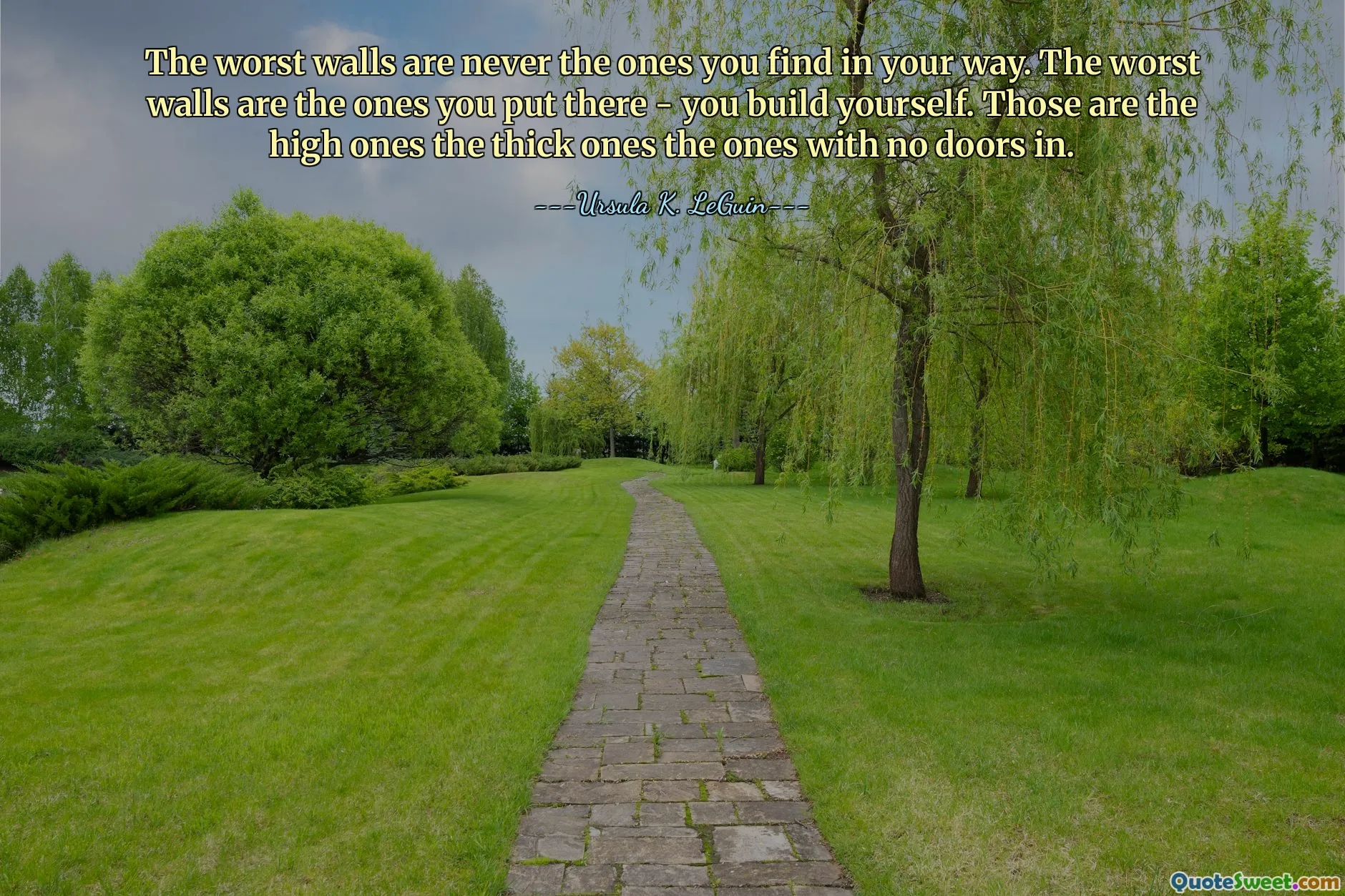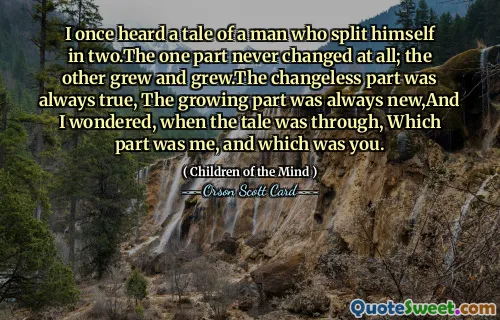
The worst walls are never the ones you find in your way. The worst walls are the ones you put there - you build yourself. Those are the high ones the thick ones the ones with no doors in.
This quote highlights the profound truth that the greatest obstacles we face are often the barriers we create within ourselves. Sometimes, in pursuit of safety or comfort, individuals build internal walls—doubts, fears, self-doubt, and limiting beliefs—that prevent growth and change. These self-imposed barriers can be harder to recognize and overcome because they are rooted in our own minds. The imagery of walls without doors is particularly powerful; it suggests an insurmountable barrier, a point of no return, which implies that closing ourselves off entirely can stunt our potential.
Reflecting on this, it becomes evident that personal development often requires us to dismantle these internal walls. It's easy to blame external circumstances for our struggles, but more often than not, our internal mindset dictates how open we are to opportunities. Building walls serves as a form of protection, but when these walls are erected intentionally or subconsciously, they limit our interactions and deny us new experiences. Recognizing these self-built obstacles invites introspection—questioning why we feel the need to wall ourselves off and exploring ways to open doors instead.
The concept also ties into the idea of vulnerability being a strength. Removing these barriers necessitates courage to confront our fears and imperfections. The quote encourages us to consider whether current limitations are imposed externally or self-imposed, and fuels the motivation to break down walls of our own making. Ultimately, true growth comes from tearing down these walls, replacing them with open doors that invite new connections, opportunities, and understanding.
In a broader sense, this quote can be applied not only to personal life but also to societal and organizational contexts, where barriers often hinder progress. The recognition that walls are often self-built underscores personal responsibility in shaping our own destinies and highlights the importance of self-awareness and intentional openness as catalysts for meaningful change.








